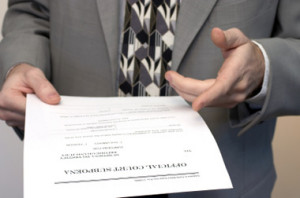Can You Serve Someone Behind Bars?
 Serving legal documents to someone who is incarcerated in Michigan is a process that requires specific steps to ensure compliance with legal standards and facility regulations. Whether you are dealing with a local jail or a state or federal prison, understanding how to navigate the process can help prevent delays and ensure that the service is executed properly.
Serving legal documents to someone who is incarcerated in Michigan is a process that requires specific steps to ensure compliance with legal standards and facility regulations. Whether you are dealing with a local jail or a state or federal prison, understanding how to navigate the process can help prevent delays and ensure that the service is executed properly.
Step 1: Identify the Location of the Incarcerated Individual
The first step in serving someone behind bars is to find their exact location. In Michigan, you can use the Michigan Department of Corrections (MDOC) Offender Tracking Information System (OTIS) to locate inmates within the state’s system of prisons or contact each county’s sheriff’s office for inmates locked up in local jails. For those in jail in Detroit, use the Wayne County Sheriff Connect Jail Dashboard. For federal inmates, the Federal Bureau of Prisons Inmate Locator is the appropriate resource. Ensure you gather the inmate’s full name and prisoner ID number, plus contact information for the facility where they are housed, including the facility name, address, phone, email, and contact person. Continue reading
How Legal Papers Are Delivered
 Service of process, or the delivery of legal papers, is a crucial step that ensures all parties involved are aware of the actions being taken against them or the actions they need to undertake. This process is a fundamental aspect of the American legal system. Accurate Serve® in Detroit, Michigan, specializes in providing this vital service, ensuring that legal documents reach their intended recipients in a timely and lawful manner.
Service of process, or the delivery of legal papers, is a crucial step that ensures all parties involved are aware of the actions being taken against them or the actions they need to undertake. This process is a fundamental aspect of the American legal system. Accurate Serve® in Detroit, Michigan, specializes in providing this vital service, ensuring that legal documents reach their intended recipients in a timely and lawful manner.
What is the Service of Process?
Service of process is the formal delivery of legal documents, such as summonses, complaints, and subpoenas, to a party involved in a legal case. The U.S. Constitution, under the Due Process Clause, mandates that all individuals have the right to be informed of legal actions against them. In Michigan, this is governed by Michigan’s Rules of Civil Procedure, which outline the requirements for serving process here in the Great Lakes State. Continue reading
Serving Someone Who Is Behind Bars
 Are you a process server who needs to serve process on someone who is incarcerated in Michigan? It might seem confusing or complicated to serve an inmate, but it’s really not! Follow our guide below for a step-by-step on how to serve process on someone who is currently incarcerated in the state of Michigan, including Detroit.
Are you a process server who needs to serve process on someone who is incarcerated in Michigan? It might seem confusing or complicated to serve an inmate, but it’s really not! Follow our guide below for a step-by-step on how to serve process on someone who is currently incarcerated in the state of Michigan, including Detroit.
Step 1: Find the Inmate
It’s fairly easy to find an inmate in Michigan, especially if they’re locked up in a state or federal prison. For inmates in the Michigan state correctional system, use the Michigan Department of Corrections Offender Search. For federal inmates located in Michigan, use the Federal Bureau of Prisons Inmate Locator. However, if the inmate is located in a Michigan county jail, you’ll need to search through each county sheriff’s inmate roster to find the process recipient. For inmates jailed in Detroit, use the Wayne County Inmate Search. Continue reading
What You Need to Know About Service of Process
 Legal proceedings often come wrapped in complexity and misconceptions, particularly when it comes to the role of process servers. Process serving plays a critical role, in ensuring the smooth operation of our legal system. Process servers in Detroit adhere to stringent legal and ethical standards, guaranteeing that every document is delivered appropriately and holds legal validity. This article aims to explain the service of process, providing essential insights into what it is and how it works here in the Great Lakes State.
Legal proceedings often come wrapped in complexity and misconceptions, particularly when it comes to the role of process servers. Process serving plays a critical role, in ensuring the smooth operation of our legal system. Process servers in Detroit adhere to stringent legal and ethical standards, guaranteeing that every document is delivered appropriately and holds legal validity. This article aims to explain the service of process, providing essential insights into what it is and how it works here in the Great Lakes State.
Understanding Service of Process
Service of process is a fundamental legal procedure that involves the delivery of legal documents – primarily those issued from the courts – to their intended recipients. These recipients can be defendants or witnesses and may be either individuals and business entities. Process service ensures that all parties involved in a legal dispute are adequately informed and possess the necessary time to prepare a defense, response, or gather any required evidence. Continue reading
Why Legal Ethics is Important in Process Serving
 Process servers are unsung heroes who ensure that the legal system operates transparently and fairly by notifying individuals of their involvement in various legal actions. This critical responsibility highlights why legal ethics are so important in process serving. At Accurate Serve of Detroit, we hold these ethical standards in the highest regard, understanding that our actions directly impact the integrity of the legal process and the lives of everyone involved in legal matters.
Process servers are unsung heroes who ensure that the legal system operates transparently and fairly by notifying individuals of their involvement in various legal actions. This critical responsibility highlights why legal ethics are so important in process serving. At Accurate Serve of Detroit, we hold these ethical standards in the highest regard, understanding that our actions directly impact the integrity of the legal process and the lives of everyone involved in legal matters.
Upholding the Rule of Law
The foundation of process serving lies in the principle of due process, a constitutional guarantee that provides every individual with the right to be informed of legal actions against them. This principle is enshrined in the Fifth and Fourteenth Amendments of the United States Constitution, emphasizing the importance of fair legal procedures. By adhering to strict ethical guidelines underpinned by federal law, process servers ensure that this fundamental right is upheld. Continue reading
Process Serving 101
 Process servers play a crucial role in the legal system, ensuring the smooth flow of court schedules by ensuring all parties are aware of their upcoming court dates. In this overview, we delve into the most frequently asked questions about process servers, shedding light on their responsibilities, the nature of their work, and the legal guidelines they must adhere to here in the Great Lakes State.
Process servers play a crucial role in the legal system, ensuring the smooth flow of court schedules by ensuring all parties are aware of their upcoming court dates. In this overview, we delve into the most frequently asked questions about process servers, shedding light on their responsibilities, the nature of their work, and the legal guidelines they must adhere to here in the Great Lakes State.
What is Service of Process?
Service of process is a critical legal procedure involving the formal delivery of court documents, known as ‘process’, to individuals involved in a legal case. This includes delivering summonses and complaints to defendants, as well as subpoenas to witnesses and subject matter experts. The process is delivered by an individual known as a process server. Once the process is served, the process server completes a form verifying the details of the service and files it with the appropriate clerk of court. Continue reading
Holidays and Process Serving
 The holiday season often brings a sense of relaxation and a break from the daily grind. For those involved in legal matters, however, the question of process service during holidays frequently arises. In Michigan, the rules surrounding this issue are clear, yet often misunderstood. At Accurate Serve of Detroit, we aim to shed light on this topic, providing clarity and peace of mind to our clients during the festive season.
The holiday season often brings a sense of relaxation and a break from the daily grind. For those involved in legal matters, however, the question of process service during holidays frequently arises. In Michigan, the rules surrounding this issue are clear, yet often misunderstood. At Accurate Serve of Detroit, we aim to shed light on this topic, providing clarity and peace of mind to our clients during the festive season.
Process Service is Allowed on Holidays in Michigan
It’s a common misconception that process service cannot be conducted on holidays. This notion stems from varying state laws across the U.S. However, in Michigan, there is no statute that explicitly prohibits the service of legal documents on holidays. In contrast, Minnesota is the only state with a specific law that forbids serving process on holidays, while several others restrict service on Sundays – a regulation not applicable in Michigan. Continue reading
How Do Process Servers Overcome Challenges?
 In Michigan’s legal system, process servers play a crucial role, yet they often face a myriad of challenges in the course of their duties. At Accurate Serve® of Detroit, our process servers are adept at navigating these challenges to ensure the smooth running of the legal process. In this post, we’ll explore the common obstacles faced by process servers and the strategies they use to overcome them.
In Michigan’s legal system, process servers play a crucial role, yet they often face a myriad of challenges in the course of their duties. At Accurate Serve® of Detroit, our process servers are adept at navigating these challenges to ensure the smooth running of the legal process. In this post, we’ll explore the common obstacles faced by process servers and the strategies they use to overcome them.
Understanding the Role and Legal Framework
Process servers are responsible for delivering legal documents such as subpoenas, summonses, and complaints to individuals involved in legal proceedings. Their work is governed by both federal and state laws. The Federal Rules of Civil Procedure, Rule 4, provides guidelines for serving legal documents in federal cases. In Michigan, Rule 2 of the Michigan Rules of Civil Procedure set forth the procedures for process serving, ensuring compliance with state-specific legal standards. Continue reading
The Benefits of Using a Local Process Server
 In the realm of legal proceedings, the role of a process server is often underestimated. However, the importance of timely and accurate service of process cannot be overstated. Accurate Serve® of Detroit, Michigan, understands the intricacies involved in this crucial step of the legal process. We offer a range of services, including process service, document retrieval, skip tracing, and diligent searches, to clients across the entire state of Michigan. In this post, we will explore the benefits of using a local process server for your legal needs.
In the realm of legal proceedings, the role of a process server is often underestimated. However, the importance of timely and accurate service of process cannot be overstated. Accurate Serve® of Detroit, Michigan, understands the intricacies involved in this crucial step of the legal process. We offer a range of services, including process service, document retrieval, skip tracing, and diligent searches, to clients across the entire state of Michigan. In this post, we will explore the benefits of using a local process server for your legal needs.
Understanding the Importance of Service of Process
Service of process is a legal procedure that involves delivering court documents such as subpoenas, summons, and complaints to the parties involved in a lawsuit. Federal Rule of Civil Procedure 4 outlines the guidelines for serving these documents, emphasizing the need for timely and accurate delivery. Failure to adhere to these guidelines can result in delays, additional costs, and even the dismissal of a case. Continue reading
Can Improper Service of Process Invalidate My Case?
 When it comes to legal proceedings, every detail matters. One of the foundational aspects of any case is ensuring that all parties involved are properly notified. This is where the service of process comes into play. But what happens if there’s a mistake in this crucial step? Can improper service of process really invalidate your case? Let’s dive in.
When it comes to legal proceedings, every detail matters. One of the foundational aspects of any case is ensuring that all parties involved are properly notified. This is where the service of process comes into play. But what happens if there’s a mistake in this crucial step? Can improper service of process really invalidate your case? Let’s dive in.
What is Service of Process?
Service of process is the procedure by which a party to a lawsuit provides appropriate notice of initial legal action to another party, court, or administrative body in an effort to exercise jurisdiction over that person so as to enable that person to respond to the proceeding. In simpler terms, it’s the act of officially notifying the defendant of a lawsuit against them. Continue reading
